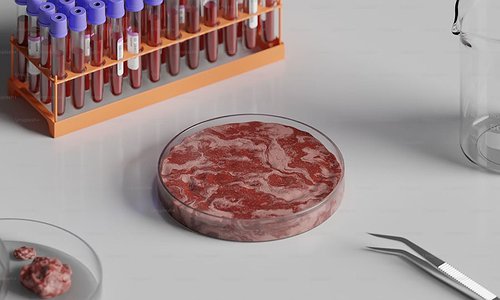ICPA to assist customers to quit smoking
Be a quitter - May is Anti-Tobacco Month, culminating in World No Tobacco Day on 31 May, and the Independent Community Pharmacy Association (ICPA) is urging all smokers to visit their local community pharmacies to obtain advice and assistance with quitting this deadly habit.
Simonè Eksteen, a director of the ICPA, explains that community pharmacies across South Africa have committed their support to this stop-smoking awareness month, and to participating in the World Health Organizations’ anti-tobacco initiative “Pharmacists Against Tobacco”, in order to alert smokers to the benefits of stopping smoking and to help them take the needed action to eliminate tobacco use.
“Pharmacists are medication experts who are active in patient counseling, medication therapy, monitoring, identifying and solving medicine-related problems. They are in pharmacies across South Africa, many of which are open for extended hours, making them ideally placed to advise people on how to stop smoking,” says Ms Eksteen. Participating community pharmacists, our “Pharmacists Against Tobacco”, will be raising awareness around the dangers of tobacco smoke and the health benefits of stopping smoking during the month of May with the hope that they can encourage as many smokers as possible to go completely smoke-free for 24 hours on 31st May, World No Tobacco Day. In preparation for May 31st, pharmacists will be able to assess the nicotine dependence of smokers – this is a predictor of the severity of nicotine withdrawal and the need for nicotine replacement therapy. They will be able to give smokers behaviour change techniques, endorsed by the World Health Orginisation, which increase a smoker’s chance of successfully quitting. Most of all -they will be able to support and encourage a smoker to set a quit date. Although giving up smoking is one of the hardest addictions to tackle, it is possible and anyone, with the right help, can do it.
How your local community pharmacy can help you quit smoking
The ICPA advises that you speak to your pharmacist. Community pharmacists can help you make one of the most important decisions concerning your health, to stop smoking, by listening and providing support, information and advice about:
different smoking cessation medications (both prescription and non-prescription choices);
managing nicotine cravings and withdrawal symptoms;
dealing with relapses;
coping with stress;
general strategies to help you quit;
finding other support networks and resources to help you quit;
referring to other health care providers, where necessary, to maximise your chances of successfully stopping smoking.
“Advice from your pharmacist could be all you need to finally stop smoking once and for all,” advises Simonè Eksteen.
The ICPA highlights a few reasons why you should quit smoking:
Cigarettes contain arsenic, formaldehyde, lead, hydrogen cyanide, nitrogen oxide, carbon monoxide, ammonia and 43 known carcinogens.
Nearly 8 out of 10 COPD (Chronic Obstructive Pulmonary Disease or emphysema) deaths are a result of smoking and currently there is no cure for COPD.
The chance that a lifelong smoker will die prematurely from a complication of smoking is about 50%.
In South Africa, tobacco smoking ranks third highest as a mortality risk factor- accounting for approximately 44 000 deaths every year in South Africa.
Smoking has been found to harm nearly every bodily organ and organ system in the body and diminishes a person’s overall health.
Being exposed to second hand smoke slows the growth of children’s lungs and can cause them to cough, wheeze, and feel breathless.
Smoking is a leading cause of cancer and death from cancer. It causes cancers of the lung, oesophagus, larynx, mouth, throat, kidney, bladder, liver, pancreas, stomach, cervix, colon, and rectum, as well as acute myeloid leukaemia.
What happens when you stop smoking?
“Smokers who ditch the habit will be surprised by how much their health improves in a short time – in fact after only 20 minutes without a cigarette, blood pressure and pulse start to drop and after eight hours blood oxygen levels return to normal levels. After 24 hours without a cigarette, carbon monoxide leaves the body and lungs start to clear out mucous and debris,” says Eksteen.
The chart below shows the beneficial health changes that take place after you quit smoking:
|
Time since last cigarette |
Health change |
Health benefit |
|
20 minutes |
Drop in heart rate & blood pressure |
Less strain on the heart and reduced risk of hypertension |
|
12-24 hours |
Carbon monoxide levels in your blood drop to normal |
Red blood cells are free to carry more oxygen around your body |
|
48 hours |
Damaged nerve endings start to regrow |
Your sense of smell and taste start to improve |
|
3 days |
The nicotine in your body has all been metabolised and excreted |
You are 100% nicotine free |
|
2-12 weeks |
Circulation improves and your lung function increases |
You start to breathe easier and energy levels increase |
|
1-9 months |
The cilia in the lungs regrow and start clearing accumulated tar from the lungs |
Your coughing and shortness of breath decrease |
|
1 year |
Your risk of coronary heart disease is about 50% that of a smoker’s |
Your chance of a heart attack is halved |
|
5 years |
Your risk of having a stroke is reduced |
In 5-15 years your risk of a stroke is the same as a that of a non-smoker |
|
10 years |
Your risk of lung, mouth, throat, oesophagus, bladder, cervix and pancreas cancers all decrease |
Your risk of lung cancer is about 50% less than that of a smoker |
|
15 years |
Your risk of coronary heart disease is the same as that of a non-smoker |
You are no longer at an increased risk of heart attack or stroke due to smoking |
|
20 years |
Your risk of smoking related diseases is now the same as that of a non-smoker |
You are good as new! |
Considering the dire consequences to a person’s overall health it is surprising that cigarettes are the single-most traded item on the planet, with approximately one trillion being sold from country to country each year. At a global take of more than $400 billion, it’s one of the world’s largest industries.
“Research shows that about 70% of smokers would like to give up smoking, 35% attempt to stop each year but less than 3% are actually successful. Smokers need help to stop smoking and your community pharmacist is available to provide this help,” says Eksteen.
“Whether you are looking for a detailed plan to help you quit smoking, seeking some advice on nicotine patches or anything in between, talk to your local community pharmacist. .Stopping smoking is the single most important thing you can do for your health and the health of those around you.”
For more information on how to Stop Smoking visit your local pharmacy or visit the Facebook page.
Submitted by: Simonè Eksteen for Catherine Pate / Catalyst Communications on behalf of ICPA
Image URL



